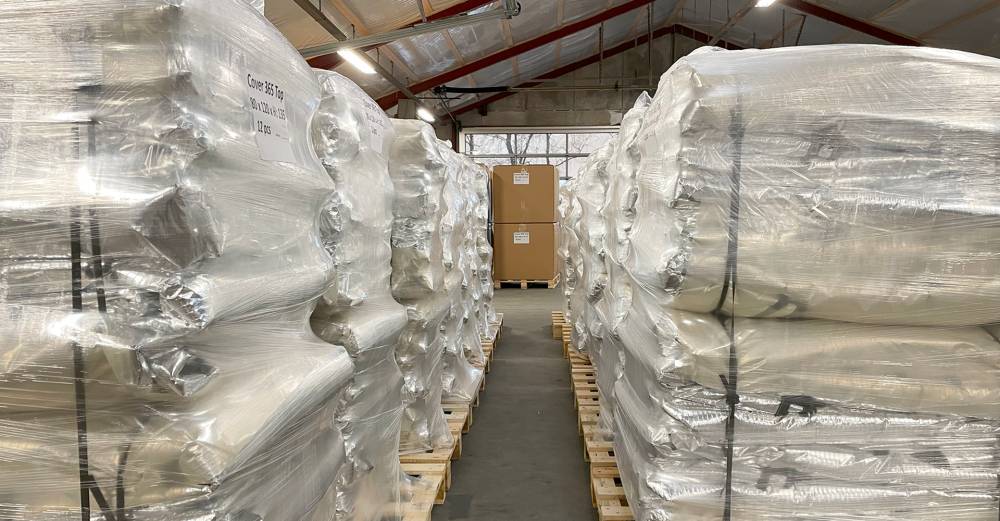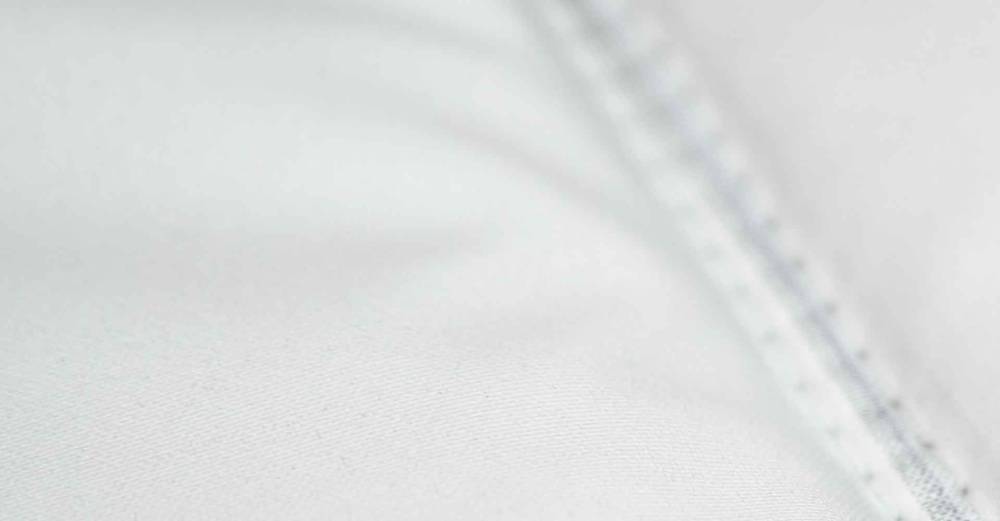From cardboard to wrap: new packaging method reduces CO2 emissions and optimises processes at Combitherm

At Combitherm, we strive to improve and optimise all areas of our business, especially when it comes to the climate and the environment. One of our most important product areas is the sale of thermal covers, which protect temperature-sensitive goods during transport and storage, and which are particularly useful to the pharmaceutical and food industries.
Traditionally, thermal covers were packed in large cardboard boxes when they were sent out to customers, but as part of our sustainability strategy, we have analysed our processes and the possibility to reduce our consumption of packing material.
That is why we have now started a process in which we are replacing the traditional use of cardboard boxes with stretch film. And this has proven to provide significant benefits both in terms of the environment and efficiency.
By purchasing a pallet packing machine that can wrap the thermal covers in stretch film, our consumption of packing material has been significantly reduced and we have saved space both in the warehouse and in the lorries that transport the thermal covers. We can now pack eight thermal covers on one pallet instead of six.
Employee workflows have also become considerably simpler, as it is both physically demanding and time-consuming to prepare the approximately 9,000 cardboard boxes that are used every year.
Last but not least, the new packaging method has led to a significant reduction in CO2 emissions!
Large reduction in CO2 consumption for packaging and transport
Previously, we used 4,470 grams of cardboard to pack a pallet of thermal covers. Now we can make do with 182 grams of stretch film.
Our CO2 calculation also shows that the CO2 footprint per pallet is considerably smaller with stretch film compared to cardboard: 0.43 kg of CO2 for stretch film as opposed to 9.8 kg of CO2 for cardboard.
This corresponds to approximately 22 times fewer CO2 emissions associated with packaging.
What is even better is that with stretch film, the pallets can now accommodate eight thermal covers instead of six, which reduces the CO2 consumption per thermal cover by 30 times (0.0266 kg for stretch film and 0.8173 kg for cardboard). Both stretch film and cardboard are 100% reusable.
Since we are now able to transport more thermal covers at a time, both transport costs and CO2 emissions during transport have also been reduced.
Our investment in a new pallet packing machine has been crucial in achieving these results.
Advantages of stretch film over cardboard
More environmentally friendly: the new stretch film has a significantly smaller CO2 footprint compared to traditional cardboard packaging – 30 times lower per thermal cover.
Efficiency: the new pallet packing machine, which wraps the thermal covers in stretch film, has optimised our shipping process, as it omits the work entailed in collecting cardboard boxes, which saves a great deal of time and increases efficiency.
Space saving: switching from cardboard boxes to stretch film frees up more storage space, as stretch film takes up less space in the warehouse than all those cardboard boxes.
Transport optimisation: the number of thermal covers that can be transported on one pallet has increased from six to eight due to the use of stretch film, which further optimises transport costs and reduces CO2 emissions.
Customer approval: one Combitherm customer in the pharmaceutical industry has already approved the new solution, which paves the way for implementation with other customers.
Financial benefit: the thinner and more flexible stretch film is not only more environmentally friendly, but also offers a financial benefit, as it is cheaper than cardboard and can be recycled.
We are excited about the many benefits that have come from just making this one change to our process for shipping thermal covers. We look forward to further development and identifying yet more areas where we can take big or small steps in optimising our processes – an essential part of Combitherms corporate philosophy.
Further information
Any queries can be submitted to COO Torben Hallstrup at th@combitherm.dk or +45 2334 0180.
Photo: Replacing the traditional use of cardboard boxes with wrapping in stretch film, Combitherm has achieved a large reduction in CO2 consumption on packaging and transport.

Would you like to know more about our products?
Please complete this form and we will then contact you.
